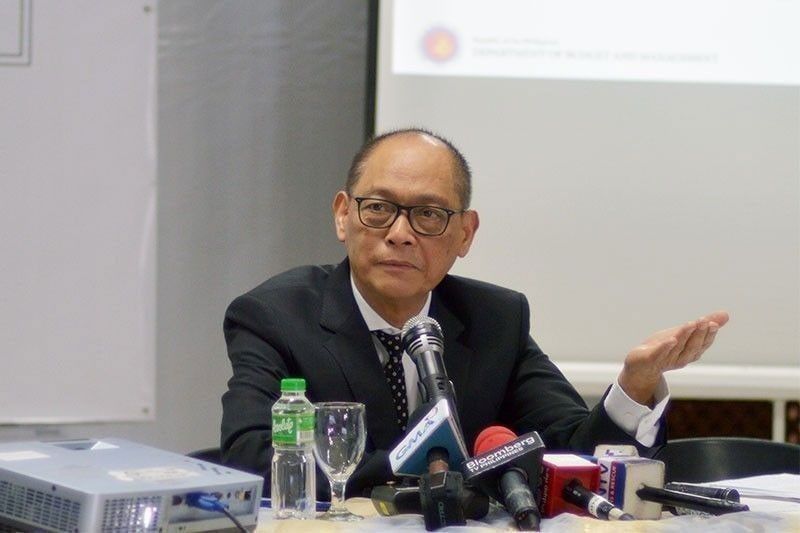Diokno bucks removal of bank funds for MIF

MANILA, Philippines — Finance Secretary Benjamin Diokno is against proposals to scrap the planned contributions of the central bank and state-run banks to the Maharlika Investment Fund (MIF), as he maintained their contributions’ potential to contribute to economic growth.
“If we exclude Landbank, DBP and BSP, it’s like they don’t really want the fund to proceed. That’s basically the tenor of their suggestion. Where are we getting [the money)?” Diokno told reporters yesterday on the sidelines of the Asia CEO Forum. He was referring to the Land Bank of the Philippines, Development Bank of the Philippines and the Bangko Sentral ng Pilipinas.
“Of course, we can get from mining, from privatization. But those kinds of suggestions, they are saying just don’t proceed. And that’s not helpful,” he said. Some quarters, particularly the Foundation for Economic Freedom (FEF), have asked proponents of the MIF to exclude the BSP and other state financial institutions from the list of sources of capital for the MIF.
Based on the current form of the bill, the BSP will inject some P100 billion, without touching the gross international reserves, as seed capital.
Another P50 billion will come from the Landbank and P25 billion from the DBP. Privatization proceeds are already part of the original bill.
“Governor [Felipe] Medalla already said it’s OK with them and BSP is in a fairly good financial state at the moment,” Diokno said.
“And then of course the fund from Landbank and DBP is only three percent of their investible fund so they can really [provide],” he said.
The FEF argued that including GFIs increases the systemic risk to the banking system.
But Diokno noted that the MIF can give Landbank and DBP higher returns on their current investments.
“So, why are you denying them the privilege of earning higher returns?” Diokno said.
The finance chief is hoping that the MIF bill will be approved by the Senate after the Holy Week break.
“We don’t know what the Senate is going to do. It will still go through some amendments, so we hope it can be approved after Holy Week,” Diokno said.
Furthermore, the head of the economic team echoed the sentiment of University of Asia and the Pacific economist Bernardo Villegas that the country’s gross domestic product in the medium term could grow by eight to as much as 10 percent if the MIF is properly established.
Such a projection is significantly higher than the 6.5 to eight percent growth for 2024 to 2028 assumption set by the Cabinet-level Development Budget Coordination Committee.
“That’s actually possible if there will be a lot of investments that would come in and we traveled with the President, there’s a lot of interest,” Diokno said.
“It’s not a punch to the moon but we stick to the 6.5 to eight percent,” he said.
The MIF intends to finance various infrastructure development projects on public road networks, tollways, green energy, water, agro-industrial ventures and telecommunications.
“Creating the fund now will entail higher returns, both in the short-term and long-term, that will redound to inclusive and sustainable growth,” Diokno said.
Adequate safeguards
Meanwhile, Speaker Martin Romualdez gave assurance yesterday that there are “adequate safeguards” in the bill creating the MIF to ensure it is “invested properly” and shielded from abuse.
In a pre-recorded video message presented at the Asia CEO Forum, Romualdez said the safeguards in House Bill 6608 are “both proactive and punitive.”
“As far as the issue of possible misuse and abuse of the Fund, let me assure everyone that your House of Representatives is keenly aware of your concern. For this reason, we have seen fit to incorporate adequate safeguards in House Bill No. 6608,” he said.
Romualdez added the MIF’s “proactive safety checks” include transparency provisions as well as a requirement to subject the books of accounts of the fund manager Maharlika Investment Corp. (MIC) to three layers of audit – by an internal auditor, an external auditor and the Commission on Audit (COA).
The audits shall include an assessment of whether investments are made in compliance with the Santiago principles, a set of guidelines designed to promote good governance, accountability, transparency, prudent investment practices and a stable and open investment climate.
A joint congressional oversight committee will also monitor MIC’s operations.
The measure also provides that anyone can have access to all MIC documents, including reports from the internal auditor, external auditor and COA.
The Speaker said the MIC management would be made up of “persons of good moral standing and reputation, of recognized probity and independence, with substantial experience and expertise in corporate governance and administration, investment in financial assets and management of investments in the local and global markets.”
A small portion of investible funds of the Landbank, DBP and BSP would be pooled and placed under the management of MIC as initial capital.
- Latest
- Trending



























